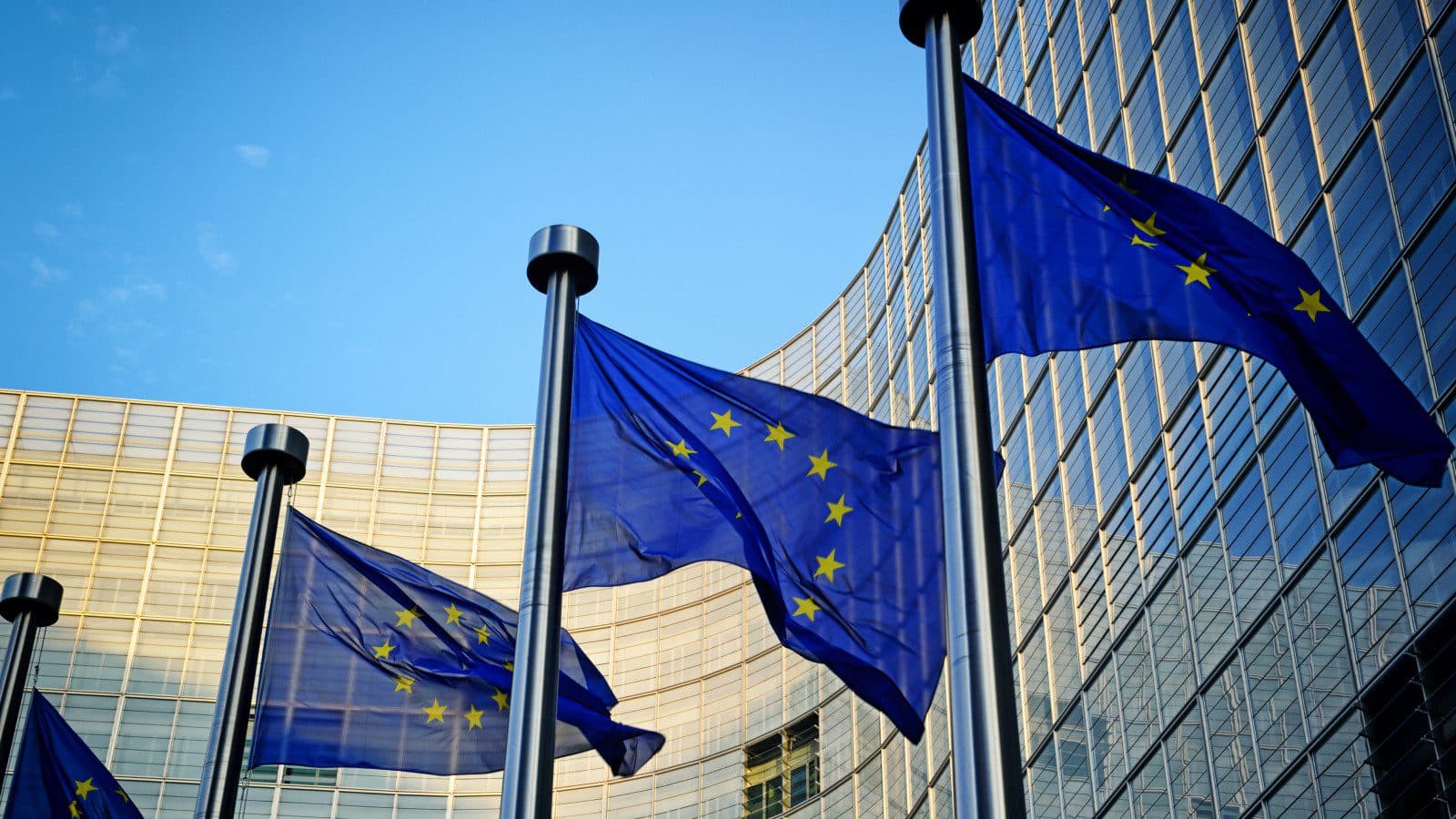European Union Plans Pilot Project on DeFi Supervision
A new DeFi report shows how the brainpower of Brussels’ bureaucracy is looking into Web3 and digital assets

EU flags in front of European Commission in Brussels | Source: Shutterstock
- The European Commission sees “minimal” DeFi contributions to the real economy but acknowledges its usefulness in the virtual economy
- A pilot project on rules regarding the DeFi ecosystem will be launched this year
The European Union is eyeing first-time DeFi rules.
A pioneer in the development of data protection legislation through GDPR (General Data Protection Regulation), the European Commission also intends to be at the forefront of the rules that could shape a decentralized financial world.
In a recent report, the EU’s executive arm revealed it will test an embedded form of DeFi’s (decentralized finance’s) supervision, which is now mainly unregulated, through a pilot.
“Adapting the EU financial services regulatory framework to a [decentralized] environment will require a rethink,” the report states. A pilot project on “embedded supervision” will be launched this year in order “to benefit from the inherent data transparency on public blockchains.”
The upshot is a tech-heavy solution in which supervisors “automatically monitor compliance with the regulatory framework by reading blockchain transaction data.” That way there is no need for market participants to “actively collect, verify and deliver data to supervisory authorities” — as is the case in the financial system now.
Although European regulators see innovation as an opportunity, executives also recognize “many risks” in DeFi, including “conduct and operational” perils.
“Conduct risks arise in the absence of any regulation and are amplified by the quasi-anonymous nature of DeFi, whereas operational risks occur in view of the vital part played by software,” the report says.
There’s also the issue of future financial stability implications arising from the rapid growth of the DeFi ecosystem “in light of the prominent role played by stablecoins.”
US Treasury Secretary Janet Yellen, meanwhile, just dispatched another warning about stablecoins in a Senate hearing Tuesday.
However, the European Commission’s staff also highlights that DeFi “could potentially increase the security, efficiency, transparency, accessibility, openness and interoperability of financial services,” compared to TradFi — especially when it comes to cross-border payment settlements.
There’s a risk of “curtailing innovation” by deploying too heavy a regulatory hand on DeFi, regulators said.
Bureaucrats are leaning toward “activity-based regulation,” rather than “entity-based,” and they argue that the focus should be on smart contracts’ rules and features.
“Long-term, the capability of regulatory bodies to automatically monitor compliance by reading public blockchain data could drastically reduce the need for market participants to actively collect, verify and deliver data to supervisory authorities,” tweeted Patrick Hansen, Presight Capital’s crypto venture adviser.
DeFi is a form of autonomous financial intermediation through a decentralized digital platform using blockchain technology, powered by open-source software. Its total value locked still represents a small slice of traditional finance.
Get the news in your inbox. Explore Blockworks newsletters:
- The Breakdown: Decoding crypto and the markets. Daily.
- 0xResearch: Alpha in your inbox. Think like an analyst.






